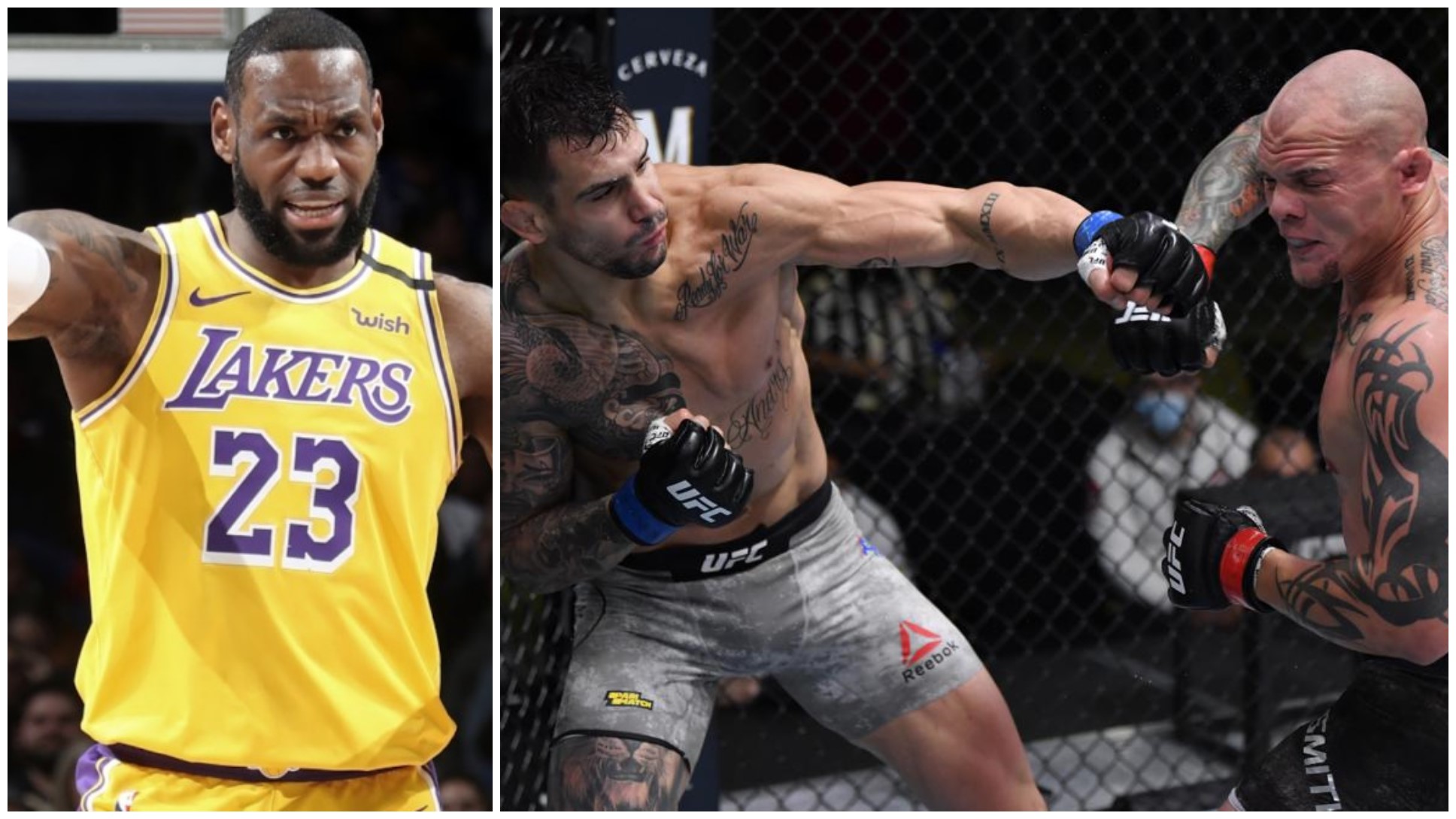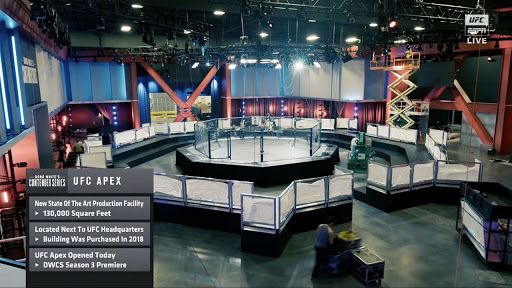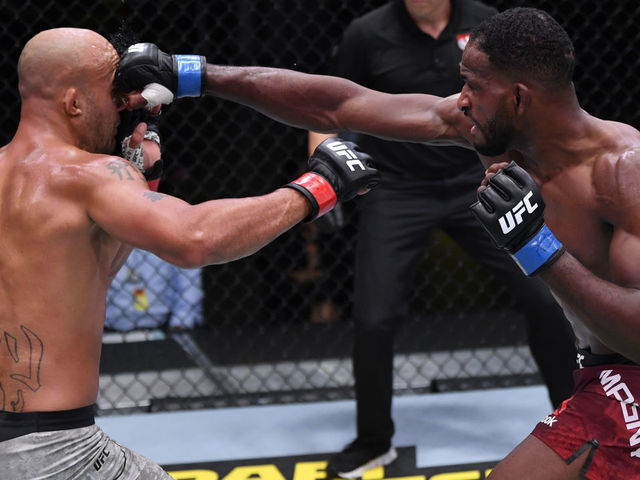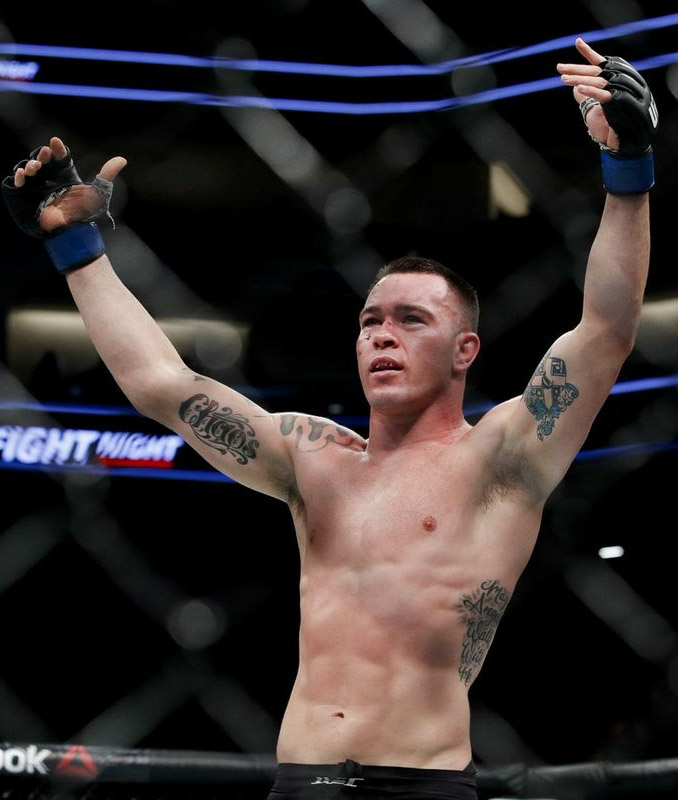Debates about television ratings are all the rage right now. In this period during which a global pandemic has halted much of the outside world, media executives have been trying to use this opportunity to capitalize on a mostly captive audience and captivate them with programming offerings, be they on streaming platforms or linear television. Live sports play a major role in that, and as these organizations slowly get back up to speed, there has been a lot of talk in media circles about who is watching what. Two of these organizations, the National Basketball Association and the Ultimate Fighting Championship, are facing contrasting narratives shaped by different types of scrutiny. But to truly grapple with these narratives, one first has to consider the larger picture and the assumptions of the people comparing the two organizations.
In early August, two things were being widely reported. The NBA had seen its ratings drop as the league picked up play with playoff seeding games in its “bubble” in Orlando, Florida. On the other hand, the UFC, despite being unable to tap into all of its most marketable names, had been putting on a full slate of events since May by any means necessary, fulling Dana White’s promise to be the first major sports organization to return. This has been a boon for the organization, which has not only seen its pay-per-view buy rate explode, but has seen an increase in television ratings for “regular” cards as well.
Anthony Amador from the sports information site Game 7 chronicled these trends in an August 7 piece, where he discussed the NBA’s 30 percent drop to an average of 1.68 million viewers in 2020, compared to 2.39 million in 2019, while the UFC, on the other hand, increased to an average 1.17 million viewers in 2020, up 30 percent from where they were in 2019. Ethan Strauss of The Athletic called the season a “ratings disaster” in an August 17 piece, noting that even before the COVID-19 shutdown, viewership was down 12 percent. Even President Donald Trump chimed in, saying that the league was in “big trouble” due to its ratings. There is a lot to look at within these numbers.
But between the lines of this discussion is its subtext. The NBA and its players are taking a clear stance on the side of social justice, and have been since even before the pandemic. And now, as civil unrest rages across the United States, players have been advocating for change in a variety of ways. Just last week, teams enacted a strike in the wake of the Jacob Blake shooting in Kenosha, Wisconsin, leading to cancellation of scheduled playoff games, and prompting a domino effect of cancellations in other sports. For a loud, vocal minority on social media, seeing the league taking such a stand has pushed them away from the league entirely — at least in their words. And the President agrees with them, as he finds ways to take jabs at the NBA — and receive return jabs from NBA coaches like Steve Kerr — whenever he can.
That is not something the UFC has to worry about, however. The organization is far from being apolitical, as last week White spoke at the Republican National Convention for the second time in support of President Trump. Many mixed martial artists have embraced much of the alt-right narrative that has surged during today’s political climate. Does that translate to an increase in viewers? Probably not. But in contrast to the narrative that being “political” is alienating NBA audiences, the UFC’s hardcore fan base does not seem to be turning away from these overtly political overtures as they look for ways to satiate their combat sports appetite.
And as with many things, the whole story is a bit more nuanced. Yes, the NBA has experienced a drop in ratings, but that is occurring across a lot of television. Take professional wrestling, for example. Both WWE and AEW have seen their ratings drop since COVID-19, and while they are slowly creeping back up, they are not anywhere near where they were in 2019 or before the pandemic hit. In fact, only nightly news broadcasts saw a boost in viewership during the COVID-19 pandemic. And it’s the summer — a time of year when NBA games don’t typically take place, with many games tipping off on weekdays in the early afternoon or late morning, rather than in prime time.
In fact, the narrative against NBA activism was dealt a powerful blow over the past week, as five of the 11 most watched games since the July 30 restart have come since the strike. Wednesday’s Thunder-Rockets first round NBA playoff Game 7 averaged 4.11 million viewers on ESPN, marking the most-watched opening round playoff game on cable in two years, and the most-watched on ESPN in three. It also delivered the largest sports audience on cable since the NFL Draft in April, topping the 4.01 million viewers for the Yankees-Nationals MLB opener in July. Whatever effect is being asserted and assumed by critics of the NBA’s social activism is not really being borne out by the numbers.
But that doesn’t take away from the comparatively strong ratings performance for the UFC, a far less mainstream sport with much lower expectations. And what has been so exceptional for the UFC during this time is that these cards are succeeding without the top matchups or the promotion’s biggest names. With COVID cancellations complicating an already volatile injury risk, the company is frequently scrambling to book bouts, as fighters volunteer for absurd turnarounds to show their “loyalty” to the promotion. And the fact that these cards featuring lesser-known fighters are drawing strong ratings should create excitement and optimism for what’s to come when things return to “normal.”
COVID-19 has created interesting situations, not only in sports, but in several industries. As the NBA looks to rebound from a ratings standpoint while solidifying its position at the vanguard of social justice and activism, the UFC is trying to use this time to become even more mainstream, all while embracing a political identity in lockstep with that of the current right wing administration and its leadership. Right now, sports fans seem to be positioned to benefit the most, with NFL Kickoff less than a week away and the potential for athletic excess on the horizon. But these remain uncertain times, and the various sporting entities are still trying to figure out how to navigate them, not just now, but in the weeks and months to come.








